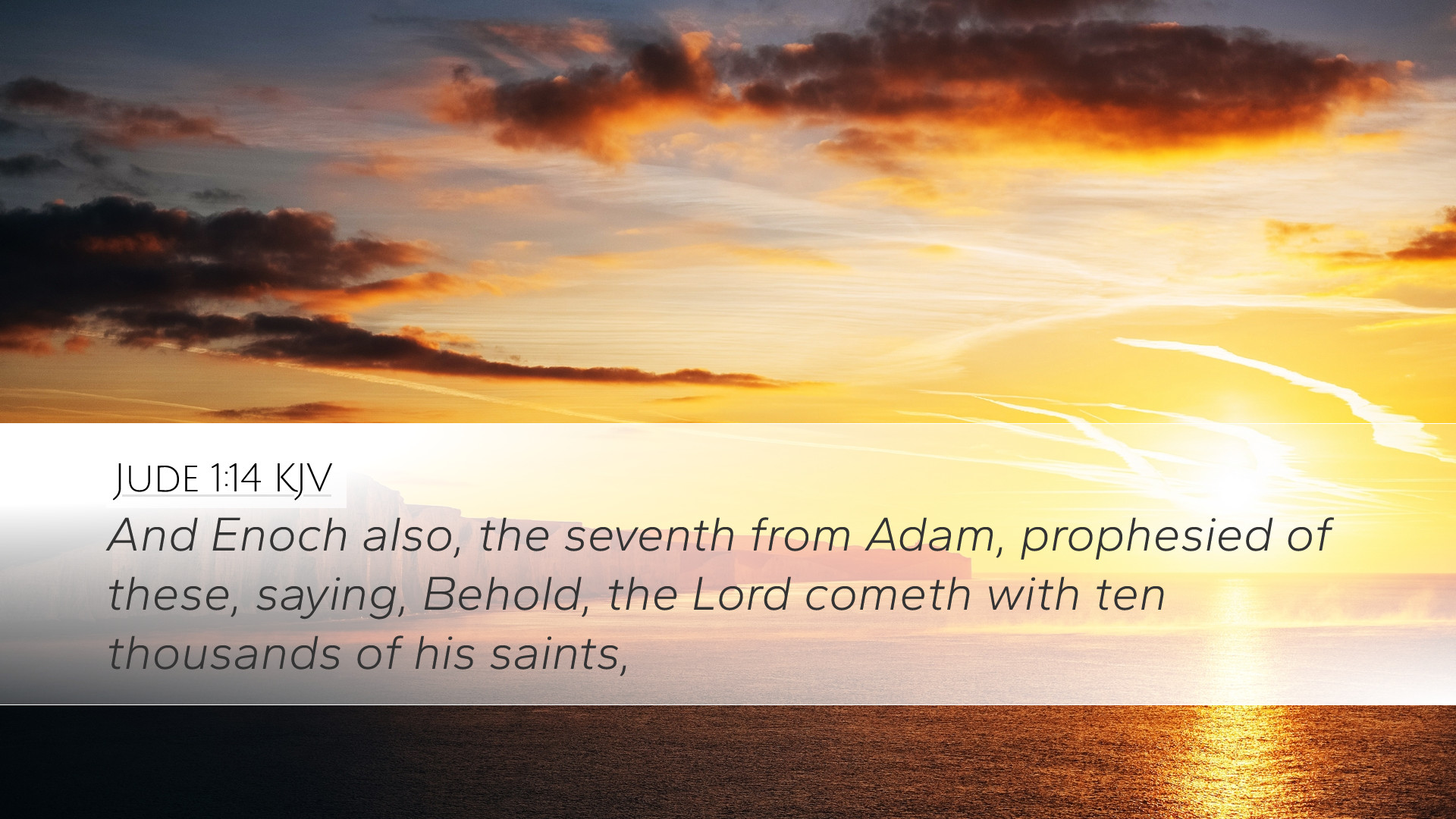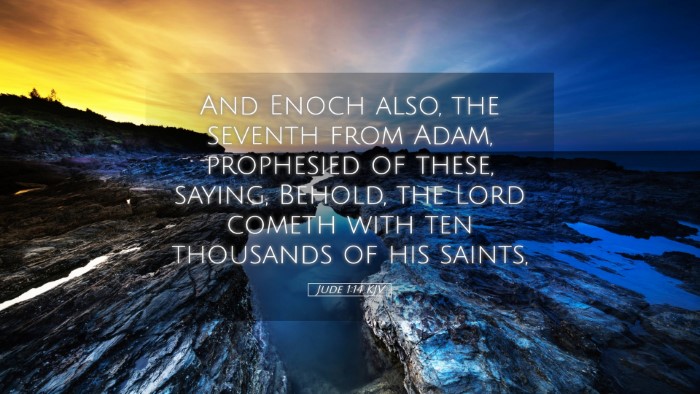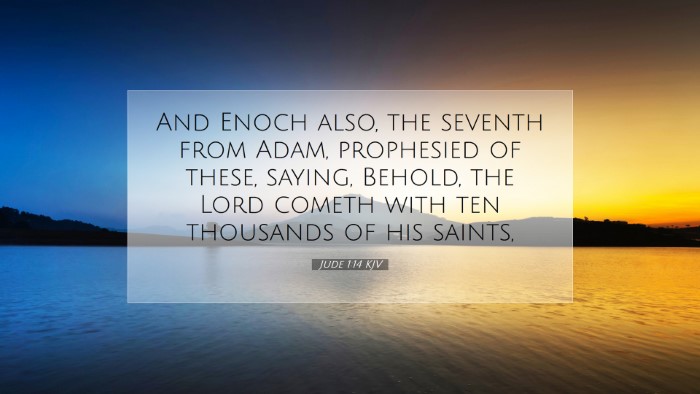Commentary on Jude 1:14
Introduction
The epistle of Jude, though brief, contains profound insights and warnings about the integrity of faith and the vigilance required of believers. In Jude 1:14, we encounter a significant reference to Enoch, which serves as a prophetic call to accountability in the face of ungodliness.
Scriptural Context
This verse speaks of Enoch's prophetic utterance regarding the judgment of the ungodly. It's essential to understand the context of Jude's letter, which presents a vehement warning against false teachers infiltrating the church.
Verse Analysis: Jude 1:14
The verse reads: "And Enoch also, the seventh from Adam, prophesied of these, saying, Behold, the Lord cometh with ten thousands of his saints." This statement is a remarkable intersection of biblical history and prophetic literature.
Enoch's Significance
- Historical Context: Enoch, as a seventh-generation descendant from Adam, represents a pivotal figure in early biblical history. His lineage highlights the continuity of God's covenant from creation onward.
- Righteous Remnant: Enoch is noted for his righteousness in a generation characterized by wickedness (Genesis 5:24). He embodies the ideal of faithful living amidst moral decay.
Prophetic Utterance
Jude's reference to Enoch’s prophecy underscores the enduring message of divine judgment and the return of the Lord. This prophecy, although not recorded in the Old Testament canon, points to an oral tradition or apocryphal source that was well-known to Jude's audience.
Theological Implications
- Nature of God’s Judgment: Enoch’s prophecy serves as a stark reminder that God’s judgment is certain. The phrase "the Lord cometh" indicates an impending action of God, emphasizing His sovereignty over time and history.
- Role of Saints: The “ten thousands of his saints” suggests a collective aspect of the divine judgment, wherein the faithful will share in Christ’s authority and acknowledgment of His lordship.
Insights from Public Domain Commentaries
Matthew Henry’s Commentary
Matthew Henry highlights that Jude uses Enoch’s prophecy to reinforce the seriousness of the document's intended message. According to Henry, Enoch’s warning serves as a historical reference that illustrates God’s consistent stance against sin and a reminder that God's people have always been called to declare His truth.
Albert Barnes’ Notes
Albert Barnes emphasizes the historical accuracy and relevance of Enoch's prophecy in the context of Jude’s epistle. He notes that the mention of "ten thousand" signifies an immense multitude, showcasing both the majesty of Christ’s return and the assurance of divine retribution for the wicked. Barnes argues that this prophetic statement resonates with the larger biblical theme of expectation for divine intervention in human affairs.
Adam Clarke's Commentary
Adam Clarke provides an elaborate discussion of Enoch's prophetic words, underscoring that the tradition surrounding Enoch was well-recognized among early Christians. Clarke posits that Enoch's foresight into judgment symbolizes a confrontation between the righteous and the ungodly, highlighting the moral dichotomy present in the world. He observes that Enoch’s life before the flood epitomizes the faithful who preserve their integrity in tumultuous circumstances.
Application for Believers Today
The exhortation found in Jude 1:14 is unmistakable: as believers, there is a call to live righteously and with the awareness of Christ's imminent return. The prophetic warning of Enoch serves as a guide for spiritual vigilance and a call to moral integrity.
Call to Righteous Living
Believers, like Enoch, are to live in such a way that their lives testify to the reality of God's forthcoming judgment. This requires a conscious effort to maintain holiness amidst societal decay.
Expectation of Christ’s Return
In reflecting upon Jude 1:14, we are reminded to anticipate Christ's return with a sense of reverence and urgency. The expectation of Christ’s coming should ignite a passion for evangelism and a dedication to spiritual growth.
Conclusion
Jude 1:14 serves as a pivotal and prophetic reminder for all who engage with this scripture. It connects the past with present anticipation, urging believers to remain steadfast in their faith and to declare the truth of God's impending justice. The insights gleaned from the commentaries of Matthew Henry, Albert Barnes, and Adam Clarke enhance our understanding and appreciation of this powerful verse.


